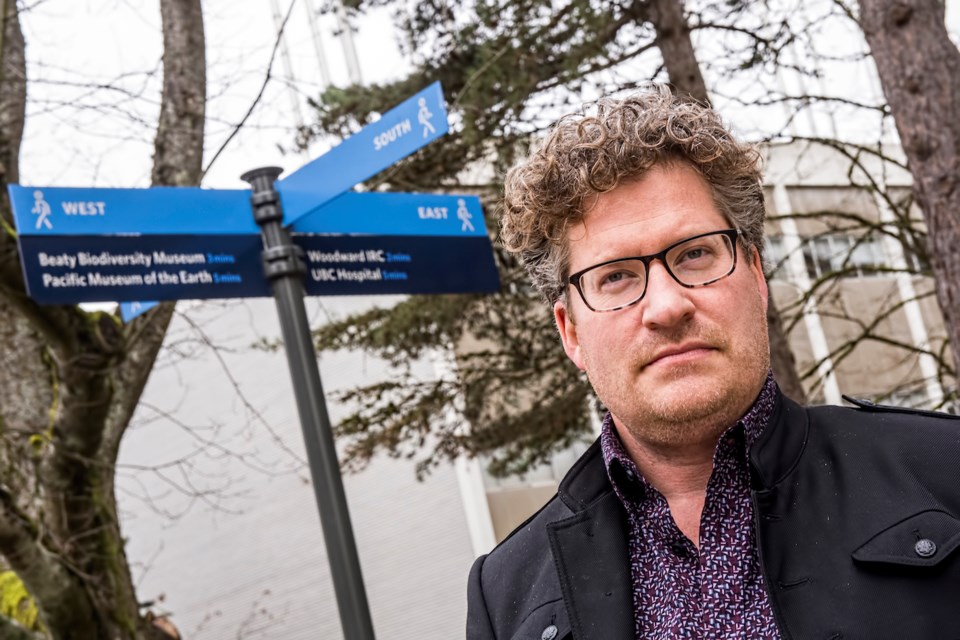Despite the B.C. government seeing a billion-dollar increase in taxes related to home sales, there was little help in the February 22, 2022, provincial budget for affordable housing.
The budget noted the real estate market hit a record in 2021, with home sales increasing by 32.8 per cent and the average sale price rising by 18.7 per cent. Those sales translated into a significant surge in income for the province, with property transfer tax revenue forecast to be $3.25 billion in the 2021-22 fiscal year, before dropping off next year to $2.5 billion.
Paul Kershaw, a professor at the University of British Columbia’s School of Population and Public Health, said the budget showed that health care trumps all and any other crisis must take a back seat.
Kershaw said that the provincial government continues to inject “incremental investments” to add new supply, especially rental and non-profit housing, but as long as the price of land and construction rise, new provincial investments will struggle to keep pace with inflated real estate values.
“The result is that it is very difficult to deliver affordable units at a scale required to ease the housing squeeze.”
The budget did include $633 million to expand services to tackle homelessness, including money for at-risk youth, rent-subsidy increases, making permanent temporary housing and support arrangements, a new $600-a-month rent supplement, and 20 more complex-care housing projects around the province, including two in Greater Victoria.
The province also pledged to continue a 10-year housing plan to deliver 114,000 affordable homes, and kicked in $100 million to accelerate construction of mixed-income housing.
Kershaw said to close the gap between home prices and earnings, home prices need to stop rising, which will require new policies. Those could include increasing the surtax on expensive homes to discourage price escalation, and incentivizing construction of energy-efficient co-op and non-profit purpose-built rental homes.
Jill Atkey, chief executive of the B.C. Non-Profit Housing Association, welcomed the $633-million expansion of supports for people experiencing homelessness, but said it’s disappointing that those waiting for an affordable home will need to wait longer because the budget accelerated planned spending on only 850 of the 10,000 affordable homes lined up and awaiting funding.
Thom Armstrong, chief executive of the Co-operative Housing Federation of B.C., said the landscape has changed since the 10-year housing plan was introduced, and a bold response is needed. “This budget doesn’t deliver that response, and that means a critical shortage of affordable housing will only get worse,” he said.
The B.C. Urban Mayors’ Caucus, a coalition of 13 mayors, applauded the $164-million investment in complex-care housing and new sites promised for around the province, as well as the $633 million to tackle homelessness.
Victoria Mayor Lisa Helps noted that four of the top five fastest-growing Canadian metropolitan municipalities are in B.C., and accelerated growth is accompanied by a housing affordability and supply crisis. “The province’s budget made clear commitments to further build and incentivize affordable housing.”
David Langlois, past president of the Victoria Real Estate Board, said he’s pleased the budget didn’t contain any significant market intervention, as he had feared.
“I have to tell you nothing scares us more than the government deciding to go off in bold new directions,” Langlois said. “I feel better about these sorts of budgets than ones that decide that they’re going to put both feet in the middle of the market and try some sort of intervention.”
Langlois said the affordability issue is difficult to tackle given the incredible demand for housing, fuelled by factors such as a surge of in-migration, the millennial generation starting families and buying first homes, and continued low interest rates.
Home-building in Victoria set a record for housing starts last year, yet demand has never been higher and most of the new units that started coming out of the ground were purpose-built rental, which left only a fraction available for purchase.




